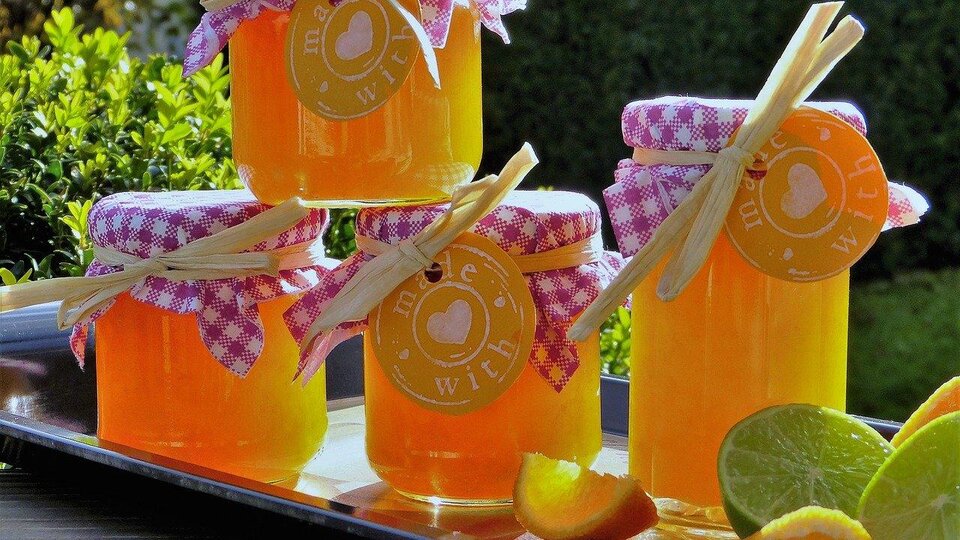Cottage Food Law: A Brief Overview
In 2019, Nebraska passed a bill (LB 304) allowing individuals to sell homemade foods already authorized for sale at farmers’ markets directly to consumers from the producer’s home, fairs, festivals, other public events or online for pick-up or delivery—all within the state of Nebraska.
On July 19, 2024, Nebraska updated the cottage food law with LB262. This expanded the types of foods cottage food producers could sell, including some that are considered TCS foods. This expansion still does not allow wholesaling to restaurants, grocery stores, etc. Nebraska producers can sell food outside of the farmers’ market season with no sales limit, as long as the following is kept in mind:
Intro
Venues & Services Header
Venues & Services Info
Those allowed under the cottage food law include:
- Farmers’ markets or roadside stands
- Public events, like fairs and festivals
- At the producer’s home
- Online or mail order in Nebraska or to states where is it legal to mail cottage foods.
- Deliverd in person by the producer
No matter the venue (including at home, online or in any print, radio or television advertising), the producer must visibly notify customers that the products were prepared in a kitchen not subject to regulation or inspection by the state regulatory authority. The customer must also be visibly notified that the food may contain allergens. Example: “This food was prepared in a kitchen not subject to regulation or inspection by the state regulatory authority and may contain allergens.”
Those prohibited under the cottage food law include:
- Restaurants
- Retail stores
- Catering
- Wholesale
Foods Header
Cottage Foods Info
Such producer shall only provide food that is not adulterated and is not any of the following types of time/temperature control for safety food:
- Any part of an animal, vertebrate or invertebrate, or animal byproduct
- Fluid milk or milk products as defined in the Grade A 12 Pasteurized Milk Ordinance adopted by reference in the Nebraska Milk Act
- Raw eggs
- Unpasteurized juice
- Infused oils or infused honey
- Sprouts (ALL)
- Low-acid canned food and hermetically sealed acidified food
- Tofu, tempeh, or similar meat substitutes
- Kimchi, kombucha, or similar fermented foods
Business Requirements Header
Business Requirements Info
- Completion of an accredited food safety training
- The producer must complete an accredited food safety course, which can be completed online or in-person in a few hours and generally costs $20-$25.
- Nebraska Extension offers both an in-person and online accredited training option for producers looking to comply with the current Nebraska cottage food law.
- Compliance with food safety guidelines required by the county, city or village for sale at public events.
- Private well testing, if applicable
- If the producer has a private well, it must be tested for nitrates and bacteria.
- Registration with the Department of Agriculture
- The producer must register their cottage food business. This is free and can be completed online in a few minutes. Registration must include:
- The producer’s contact information
- Food safety course name and completion date
- If applicable, private well testing date
- The producer must register their cottage food business. This is free and can be completed online in a few minutes. Registration must include:
Labeling Header
Labeling Info
- Label must be legible and in English
- Label must include:
- The common name of the food
- The producer shall label the food so that the name and address of the producer is provided to the consumer on the package or container label
- Food that is time/temperature control for safety food shall also have labeling that includes ingredients in descending order of predominance
- Listing ingredients in descending order of predominance is by weight and means that the ingredient that weighs the most is listed first, and the ingredient that weighs the least, is listed last. This reflects what dominant ingredients are in your product.
- Learn more about weights at measures at: https://nda.nebraska.gov/fscp/wam/wam_farmermarket
- The producer shall inform the consumer by a clearly visible notification that the food:
- “The food was prepared in a kitchen that is not subject to regulation and inspection by a regulatory authority; and may contain allergens”
- For sales conducted at a farmers’ market, fair, festival, craft show, or other public event, such notification shall be provided at the sale location.
- For sales conducted for pickup or delivery, such notification shall be provided at the producer's private home, on the producer's website, if such website exists, and in any print, radio, television, or Internet advertisement for such sales.




